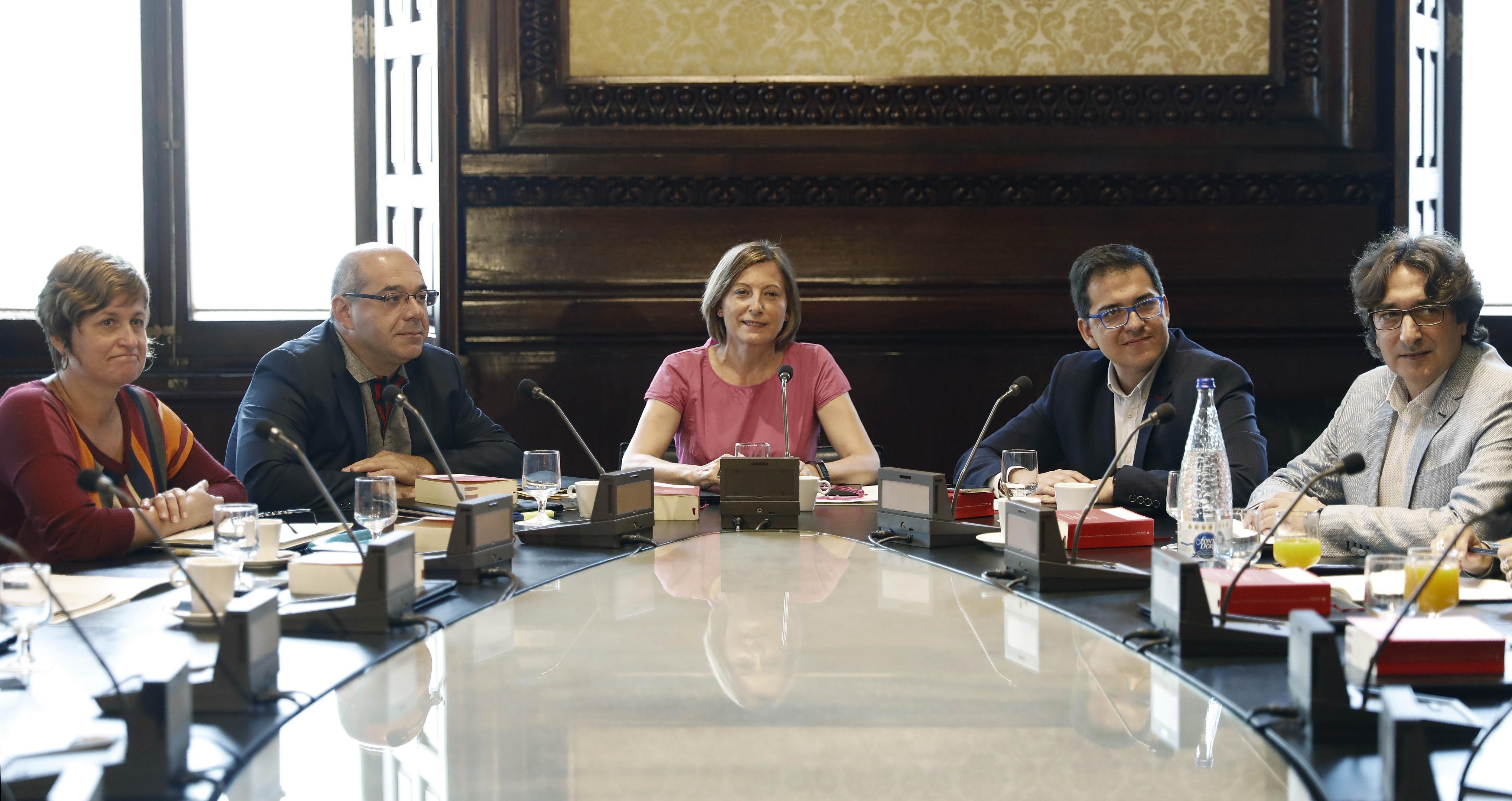The Board of the Catalan Parliament has not included the admission of the Law of the Referendum in its agenda and has decided to postpone the debate, although no date has been specified.
JuntsPelSí (Together for Yes) and the CUP (Popular Unity Candidacy) registered the Proposal for the Law of the Referendum, that will give legal security in the referendum of 1st October, at the end of July, and it was therefore predicted to be included in the meeting of the Board this Wednesday, given that it was the first session after the summer break. However, this has not been the case, and it has been decided to postpone the debate.
The president of the Parliament, Carme Forcadell, has assured that putting the Law of the Referendum in front of the Board is being appraised given "the complexity of the law". "There is no one innocent and we know the situation of judicialization of politics that we are living," she added. In fact, having not debated the proposed law this Wednesday has prevented a clash with the Spanish state, which itself was contemplating tackling this matter in a Cabinet Meeting this afternoon, in order to contest the law before its debate in the plenary session.
Asked when the law might enter into the formal process, Forcadell did not give details but neither did she rule out that it would be debated in the next Board meeting, to be held on 22nd August.
Criticism of Forcadell
From the Ciutadans (Citizens) party, they have branded the fact that the Referendum Law has not been put forward for debate as "parliamentary savagery" on behalf of the Parliament's president, Carme Forcadell. This was stated by the deputy spokesman of the group, Fernando de Páramo, who claimed the president's decision for a "political appraisal" was derived from the consequences that might result from the formal admission of the law.
"Forcadell has demonstrated that she plays on one side and puts herself alongside JuntsPelSí and the CUP," the president of the Catalan PP (Popular Party), Xavier García Albiol, said. He also described the Parliament as a "joke" and added: "If a group registers a proposal it is because it wants it to be processed. If it doesn't register it, it's because it doesn't want it to be processed. It's a question of Barrio Sésamo (Sesame Street)."
Report from the Board of Guarantees
From the PSC (Socialists' Party of Catalonia), they have advanced events and have assured that they will present a report to the Council of Statutory Guarantees as soon as the law is processed. This was announced by the leader of the Catalan socialists, Miquel Iceta, who said that the reason for not debating the Referendum Law "is the jeering that the pro-independence majority makes of our institutions".
Precisely for this motive, the socialists have presented the application report, and a letter that could be modified depending on the events of the next days.
The declaration from the Constitutional Court
On top of everything, the Superior Court of Justice, at the request of the Constitutional Court, presented this morning to the Catalan Parliament a notification of the formal admission of the unconstitutional appeal by the Spanish government regarding the reform of regulations and the consequent suspension of Article 135.2, that provides for the processing of a proposal of law in a single reading and at the request of a single group.
This notification includes a warning to the president of the Parliament, Carme Forcadell, the members of the Board, the Secretary General and the principal counsel of the Parliament about the risks of not obeying the suspension of the reform of regulations.
"We have received the notifications and are waiting to see when they will also be received by the Boards of 14 other autonomous parliaments, as well as the Congress of Deputies, which all also include the possibility of processing a law in one single reading," said Forcadell. If this is not the case, she considered, then there are "Parliaments of first and second [divisions]".
On the other hand, the plenary of the Constitutional Court will meet this same afternoon to decide whether or not to accept the appeal from the Catalan government concerning the suspension of Article 135. Everything indicates, however, that the court will reject it.

